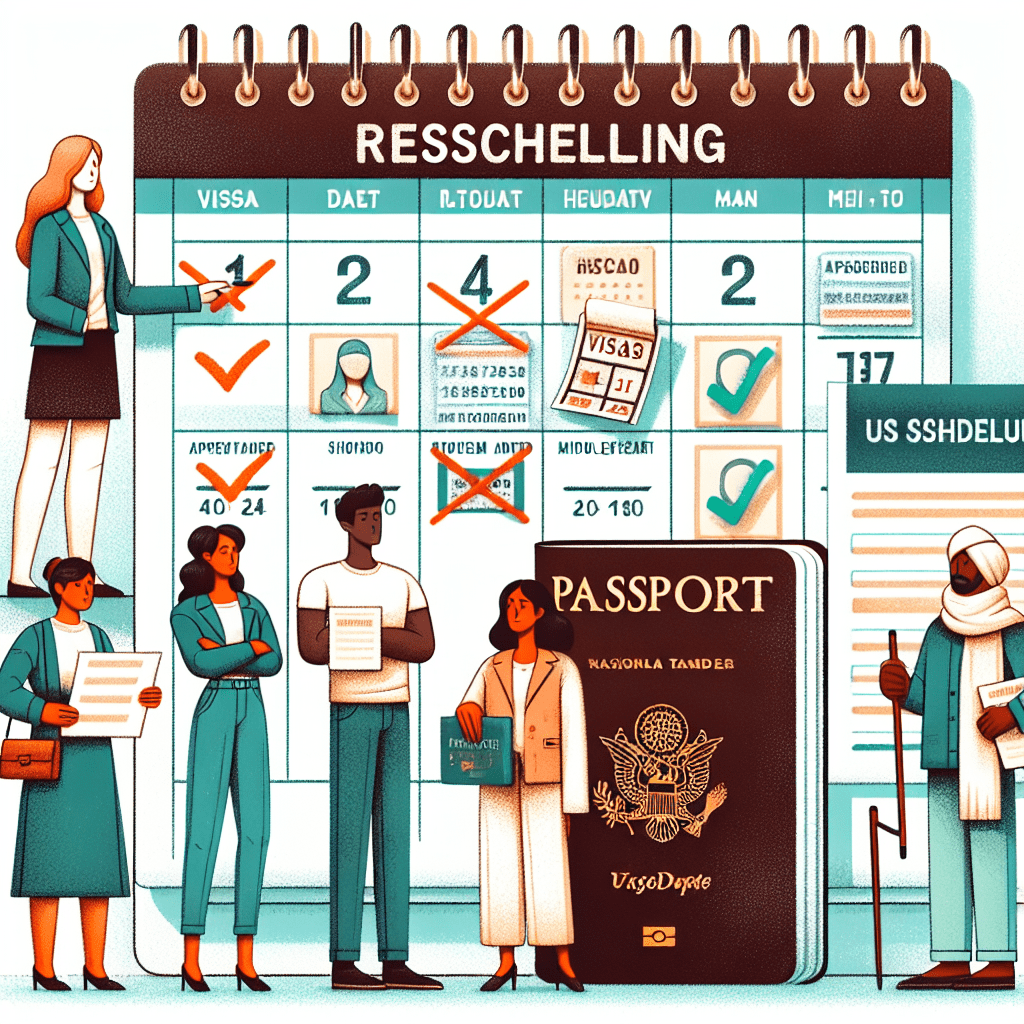Navigating the complexities of the US visa appointment process can feel overwhelming, especially when it comes to understanding the limits on rescheduling US visa appointments. Many applicants experience anxiety and frustration due to unexpected circumstances or scheduling conflicts, leading to potential setbacks in their travel plans. Knowing the ins and outs of rescheduling can alleviate some of this stress, ensuring a smoother experience as you pursue your US visa. This article will delve into the constraints of rescheduling appointments, the factors affecting flexibility, and offer insights that may transform your approach to this critical process.
Navigating the Constraints of US Visa Appointment Rescheduling
The US visa appointment system is designed to manage an influx of applicants, which inherently creates limits on rescheduling. When an appointment is made, it is essential to recognize that each consulate or embassy may implement different policies regarding rescheduling. Many consulates have strict timelines within which applicants can modify their appointments, often requiring changes to be made days or even weeks in advance. Understanding these specific timelines is crucial for applicants who may need adjustments due to valid reasons such as emergencies or scheduling conflicts.
Additionally, the availability of open slots for rescheduling can significantly restrict options. The demand for US visa appointments can be exceptionally high, especially during peak seasons or after travel restrictions are lifted. Depending on the location, applicants may find that rescheduling could lead to waiting weeks or even months for a new appointment. This situation can be particularly frustrating for individuals on tight timelines, such as students facing impending school start dates or professionals needing to travel for work.
Furthermore, the appointment system often incorporates a ‘no-show’ policy that penalizes applicants who fail to attend their scheduled appointments without prior notice. This policy can complicate rescheduling efforts, as repeated cancellations or no-shows may lead to additional scrutiny or delays in the visa process. Thus, it’s vital to approach the rescheduling process with care and to be fully aware of the consequences of missed appointments.
Key Factors Affecting US Visa Appointment Flexibility
Several critical factors can influence the flexibility of US visa appointment rescheduling. One of the most significant is the type of visa being sought. Different visa categories, such as student visas, work visas, or tourist visas, may have varying protocols and timelines associated with appointment rescheduling. For instance, student visa applicants may experience more urgency in their scheduling needs, especially if they are navigating tight timelines due to academic calendars.
Another important consideration is the applicant’s geographic location. Certain US embassies and consulates experience higher demand than others, resulting in a more limited number of available appointments for rescheduling. If you are located in a region with a high volume of applicants, it may be challenging to find a new appointment that aligns with your schedule. This geographic disparity necessitates an advanced understanding of local appointment trends and the need for a proactive approach to booking your visa appointment.
Finally, efforts to streamline application processes at various consulates can impact appointment flexibility. The US government occasionally introduces new policies aimed at enhancing efficiency, which may inadvertently affect rescheduling options. For example, a move to centralized appointment systems may improve overall access but could also lead to stricter limits on how often and when appointments can be adjusted. Staying informed about these changes through official channels is essential for applicants seeking to navigate the complexities of the rescheduling landscape effectively.
Understanding the limits on rescheduling US visa appointments is critical for anyone navigating the visa application process. By appreciating the constraints and key factors at play, applicants can make informed decisions and minimize stress associated with unexpected changes. As you embark on your visa journey, remember to stay vigilant about the specific requirements of your consulate, keep an eye on appointment availability, and remain adaptable to changes in the application process. Whether you are preparing for a work assignment, educational opportunity, or vacation, being equipped with this knowledge can make a significant difference in your experience. Take control of your visa application journey and ensure that you are ready to tackle any challenges that come your way.
Exploring the Impact of 40,000 Daily Steps on Weight LossEffective Yoga Poses for Optimal Weight Loss and WellnessComprehensive Reviews of Happy Mammoth Weight Loss ProgramRelevant LinkRelevant LinkRelevant Link




